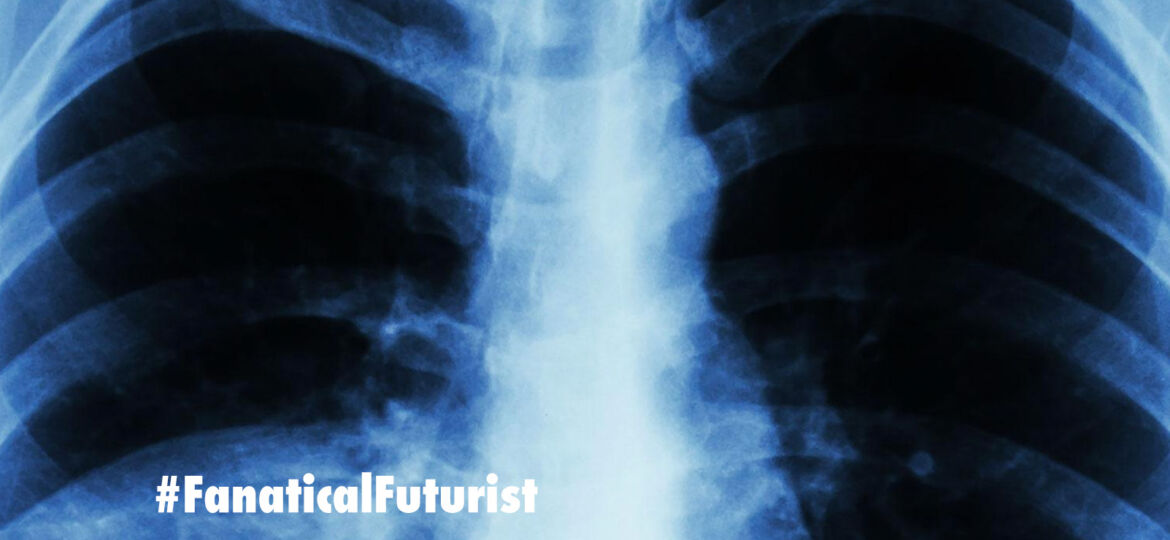
WHY THIS MATTERS IN BRIEF
Chest diseases claim millions of lives a year and being able to diagnose them faster will potentially help doctors save hundreds of thousands of lives.
Artificial Intelligence (AI) is starting to make a dent in the multi-trillion dollar healthcare industry, from being able to identify cancers and healthcare issues with just a glance, to being able to decipher the mysteries of the human genome and figure out how much longer you have left to live, but now it has a new trick. It can diagnose dangerous lung diseases better than human doctors.
In a new arXiv paper published by the researchers from Stanford University, who also trained their smart watches to identify when you’re getting ill, the team behind the newest AI addition to healthcare explain how CheXNet, their Convolutional Neural Network achieved the feat.
CheXNet was trained on a publicly available data set of more than 100,000 chest X-Rays that were annotated with information on at least fourteen different diseases. The team then had four Radiologists go through a test set of X-Rays and make diagnoses, and these were compared to the diagnoses performed by CheXNet. Not only did CheXNet beat the Radiologists at spotting Pneumonia, but once the algorithm was expanded, it proved better at identifying the other thirteen diseases as well.
Chest infections are one of the leading causes of death in the world, with Pneumonia alone claiming over 50,000 lives a year in the US alone, and it’s also the single largest infectious cause of death for children worldwide, killing almost a million children under the age of five in 2016.
It’s no surprise therefore that Andrew Ng, one of the world’s top AI experts, who recently left the top spot at Baidu, and who was one of the co-authors of the paper, thinks AI is increasingly going to be the cornerstone technology that helps transform global healthcare, and ChexNet isn’t the only AI closing in on the human experts. Whether it’s identifying heart complaints better and faster, or identifying disease just by analysing the sound of your voice, he thinks we’re only now just starting to realise the potential of AI.
Radiologists though have been on notice for a while after previous research showed that AI is as good as or better than doctors at spotting problems in CT scans, and the advances in the field are now coming so thick and fast that Geoffrey Hinton, one of the pioneers of deep learning recently told government officials medical schools “should stop training radiologists now.”
Analysing image based data sets like X-Rays, CT scans, and medical photos is what deep learning algorithms excel at, and slowly but surely they’re proving their metal, and soon they’ll start helping save countless lives.
















